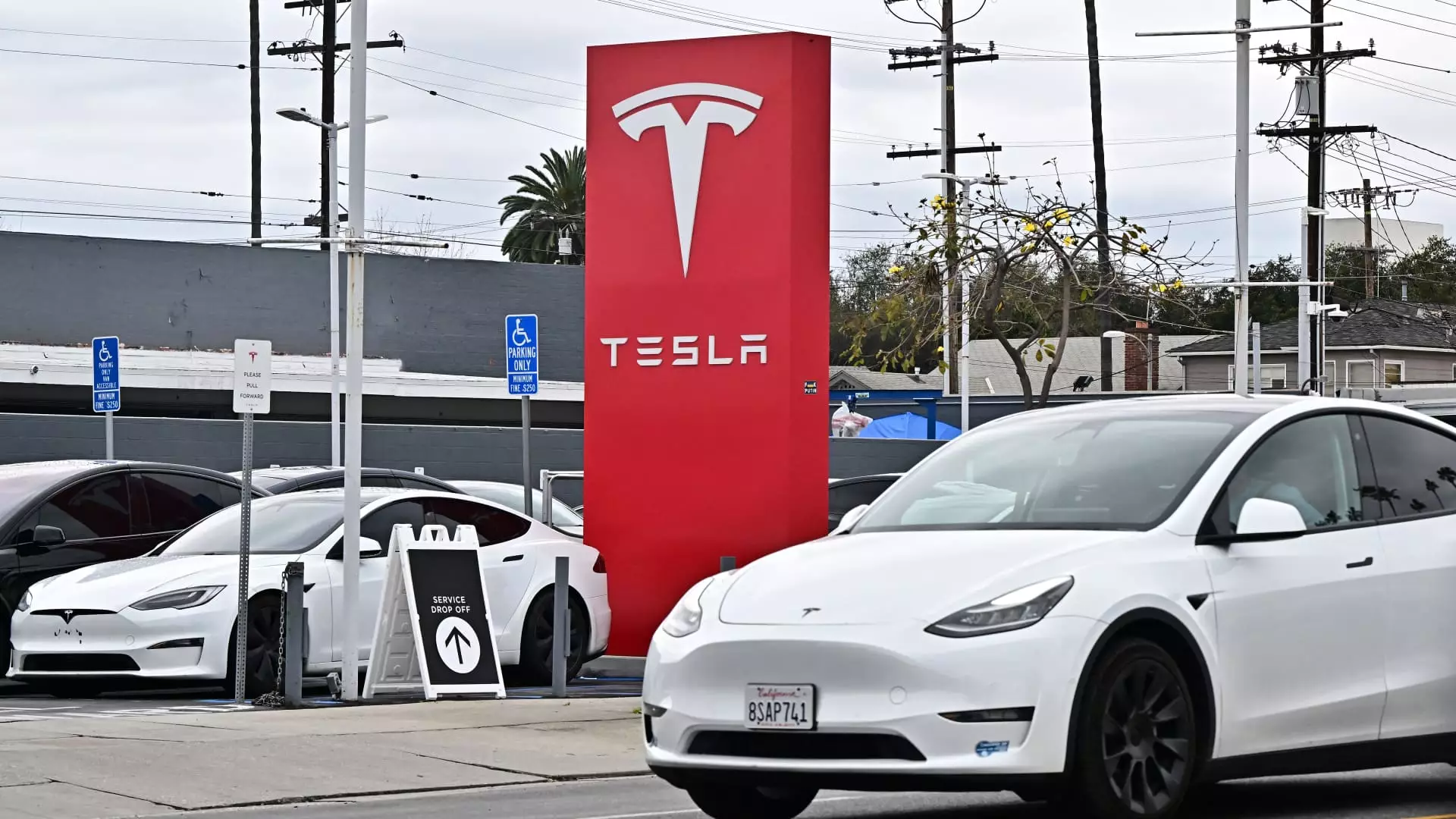As Elon Musk navigates the uncharted waters of political leadership following his controversial appointment in the White House, one cannot help but observe the seismic shifts within Tesla. Having long been the darlings of the electric vehicle (EV) market, the latest analysis reveals a concerning trend: record levels of Tesla trade-ins. Despite Musk’s formidable influence, it appears that consumer faith in Tesla is faltering at an alarming rate. There’s a sense of betrayal among loyal fans who once celebrated Tesla for its innovation and environmental commitment, as they now seek alternatives amid Musk’s turbulent political journey.
Musk’s high-profile role in the second Trump administration has left many wondering whether his ambitions overshadow critical issues that consumers care about. He is reducing the federal workforce while simultaneously pushing aggressive policies that have drawn legal challenges and public ire. In this context, it is not just Tesla that is at stake; it’s the broader ideals of sustainability and market leadership that Tesla once embodied. The dichotomy of being a tech mogul and government official raises eyebrows and, more importantly, alarms dedicated Tesla supporters.
Stock Market Meltdown: A Distant Echo of Confidence
Investors donned a cautious outlook as the stock price for Tesla plummeted by 42% this year. Initially buoyed by Musk’s promise of an electric future, the reality of diminished sales and stock devaluation paints a stark picture. The excitement around electric vehicles is real, yet the brand synonymous with EVs is now synonymous with instability. The once-certain enthusiasm for Tesla shares has morphed into a frantic scramble for exit strategies, leaving many wondering whether they miscalculated their trust in Musk as a leader.
Markets thrive on confidence, and Musk’s current trajectory raises questions about whether he can effectively juggle the heavy demands of both his political position and corporate stewardship. Incongruities in leadership style and public engagement have left Tesla’s image vulnerable, making it susceptible to challenges from both competitors and disgruntled consumers. Investors are slowly coming to terms with the reality that the narrative of Tesla being “too big to fail” may no longer hold.
Consumer Sentiment: The Price of Controversy
A pivotal phrase articulated by Jessica Caldwell from Edmunds resonates: as Tesla’s brand loyalty wavers, competitors have a ripe opportunity to capture defecting customers. The once unassailable image of Tesla—a badge of honor among EV enthusiasts—is eroding under the weight of lawsuits, protests, and violent acts against Tesla properties. The paradox is striking: Musk’s notoriety, once an asset, has morphed into a liability as potential buyers shy away from what has become a politicized symbol of electric mobility.
With an 11% decline in Tesla sales year-over-year, it is evident that consumers are reassessing their allegiance. The remnants of unwavering commitment are being dramatically tested. Traditional automakers and new entrants are emerging from the shadows, armed with competitive pricing and innovative technology to sway disgruntled Tesla fans. It’s no longer just about EV capability but about brand ethos and commitment to an apolitical stance.
The Allure of Alternatives: A Broader Perspective
The electric vehicle market is rapidly shifting focus. Consumers, once viewed as ardent supporters of Nissan’s Leaf or Tesla’s Model S, are now eyeing Ford, Chevrolet, and even lesser-known brands that have entered the fray. These companies have capitalized on Tesla’s missteps and uncertainties, promising less drama and more reliability. The statistic that just 2% of U.S. car shoppers are unfamiliar with Musk signifies how his persona and leadership style overshadow Tesla itself, a dangerous precedent for any brand tethered to an individual rather than its own merits.
As many Tesla enthusiasts trade in their vehicles at unprecedented rates, the market dynamics illustrate a stark reality: a strong brand needs more than revolutionary products; it requires a sense of trust and stability. The ideological polarization surrounding Musk’s governance is bleeding into the consumer experience, transforming loyal followers into uncertain buyers.
In this landscape, it is not merely about who can produce the best electric vehicle, but rather who can reaffirm consumer trust amidst mounting controversy. The winds of change in the automotive industry are relentless, and as Tesla grapples with an identity crisis, its competitors have begun to thrive. The question remains: can Musk pivot and rebuild the Tesla narrative before it is too late?

